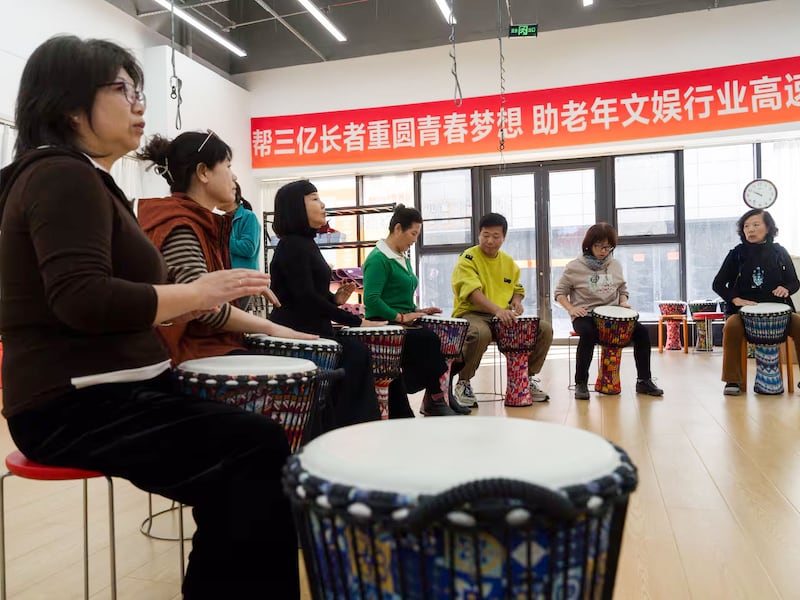Internet censors have taken down a speech by a top Chinese economist that went viral after he warned that a widespread lack of opportunities for young people was dragging down growth, which he said had been overstated by several percentage points in recent years.
Instead of embarking on promising careers and pouring their disposable income into the economy, young people in today’s China are tightening their belts and “turning off the lights and eating noodles,” Gao Shanwen, chief economist at SDIC Securities, told an investor conference in Shenzhen on Tuesday.
“Turning off the lights and eating noodles” is a catchphrase typically used to describe someone who is down on their luck after failed investments in the stock market, according to Baidupedia.
Gao’s warning, which had been widely shared on social media, was apparently considered sensitive enough to be removed from the “Economist Book Club” public account on WeChat, on which had posted the speech in full.
The WeChat link on Wednesday returned the notice: “This content is no longer available due to complaints of violations.”
Gao’s speech was a direct contradiction of claims by the ruling Chinese Communist Party under Xi Jinping that consumption, particularly by young people, would be the driving force behind post-lockdown economic growth.
Yet, formerly prosperous workers in China, both white-collar and blue, have told Radio Free Asia that they are struggling, despite the upbeat tone of state media which is under pressure to deliver positive economic news.
Meanwhile, rampant youth unemployment in China has left millions of young people floundering, living at home, relying on delivery jobs or, in a growing trend, “pretending to go to work.”
Younger populations
Gao made his argument in detail, pointing out that areas with younger populations had seen worse economic performance since the ending of the zero-COVID policy in December 2022 than areas with older populations.

“The younger the population of a province, the slower the consumption growth; the older the population of a province, the faster the consumption growth,” Gao cited recent economic statistics as saying.
“This conclusion is somewhat counterintuitive and is summarized ... in three sentences: vibrant older people, lifeless young people and middle-aged people in despair,” he said.
Gao also warned that government economic growth figures were unlikely to be a true reflection of what has unfolded in China since the collapse of the real estate bubble three years ago.
He said that if models from other country’s with burst property bubbles were applied to China, the country’s economy should have contracted by at least 2%, more likely by 3-4% in each of the last three years, though official figures have only reported a slowdown of 0.2 percentage points.
“The GDP growth rate has been overestimated by 3 percentage points each year, and by 10 percentage points cumulatively, which corresponds to the loss of 47 million employed people in urban areas,” Gao told the conference in the speech, a copy of which was posted by the U.S.-based China Digital Times website.
No impact on the elderly
While many older people in China have pensions to fall back on, young people are barely contributing to the economy at all, he warned.
RELATED STORIES
China’s young unemployed ‘pretending’ to work in libraries, cafes
China failing to deliver jobs for its ‘rotten-tail kids’
“For the elderly, ... there will be no impact on their income, and they can continue to enjoy their twilight years and dance in public places,” Gao said.
“For young people, income expectations have been significantly revised downward, the certainty of income growth has been significantly revised downward,” he said. “They can’t find jobs, or the jobs they find are significantly different from their expectations.”
Gao said other economies had taken an average of nine years to recover following a burst property bubble, in the absence of government support, and around 3-4 years with sufficient support.
Because of this, he called for further interest rate cuts, as well as a general lowering of expectations for future growth rates.
Gao’s warnings came as China’s leaders announced they would hold their two-day Central Economic Work Conference behind closed doors from Dec. 11 to map out economic development targets and stimulus plans for 2025, Bloomberg quoted sources as saying on Tuesday.
Translated by Luisetta Mudie. Edited by Roseanne Gerin.
